 April 2024 in “Scientific reports (Nature Publishing Group)”
April 2024 in “Scientific reports (Nature Publishing Group)” Rosemary and neem extract may be an effective natural treatment for dandruff and hair loss.
February 2024 in “International journal of molecular sciences” Type 3 Innate Lymphoid Cells help maintain skin health and balance, and are involved in skin diseases and healing.
 January 2024 in “CRC Press eBooks”
January 2024 in “CRC Press eBooks” Exopolysaccharides are safer and beneficial alternatives to harmful chemicals in cosmetics.
 December 2021 in “Revista da Sociedade Portuguesa de Dermatologia e Venereologia”
December 2021 in “Revista da Sociedade Portuguesa de Dermatologia e Venereologia” Imbalance in scalp bacteria can affect hair and scalp health, potentially leading to conditions like hair loss, psoriasis, and dandruff.
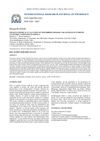 December 2021 in “International research journal of pharmacy”
December 2021 in “International research journal of pharmacy” The quality of Neelibhringadi Keratailam varies among products, suggesting a need for better standardization and quality control.
 July 2021 in “Journal of emerging technologies and innovative research”
July 2021 in “Journal of emerging technologies and innovative research” Ayurvedic methods successfully treated severe acne in a patient.
 September 2020 in “Journal of Investigative Medicine”
September 2020 in “Journal of Investigative Medicine” Omics techniques are needed to understand the scalp microbiome's role in alopecia areata for new treatments.
 August 2019 in “Journal of Investigative Dermatology”
August 2019 in “Journal of Investigative Dermatology” The study found that tight junctions reach the top layer of the skin's stratum granulosum, not just the second top layer as previously thought.

Changes in skin bacteria can affect hair loss and new treatments targeting these bacteria may prevent balding without sexual side effects.
July 2018 in “Media Informasi” The 3:2 combination of pandan and snake plant extracts promotes hair growth effectively and is safe to use.
 June 2018 in “Journal of Clinical Periodontology”
June 2018 in “Journal of Clinical Periodontology” Finasteride may cause gum side effects in some patients.
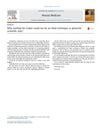 June 2014 in “Wound Medicine”
June 2014 in “Wound Medicine” Waiting for a perfect study is futile; instead, use a clinical registry and collect data incrementally to improve wound treatment knowledge.
 21 citations,
February 2012 in “Journal of the European Academy of Dermatology and Venereology”
21 citations,
February 2012 in “Journal of the European Academy of Dermatology and Venereology” Late-onset alopecia areata in Taiwanese patients is more common in women, usually starts at age 57, often involves less than 10% hair loss, and may have a minimal link to thyroid issues.
5 citations,
September 2022 in “Frontiers in Nutrition” Gut bacteria differences may help diagnose and treat Alopecia areata.
 4 citations,
November 2022 in “Frontiers in Immunology”
4 citations,
November 2022 in “Frontiers in Immunology” Lung and liver macrophages protect our tissues and their dysfunction can cause various diseases.
 November 2024 in “Journal of Scientific Agriculture”
November 2024 in “Journal of Scientific Agriculture” Silk proteins are great for cosmetics because they protect and improve skin and hair while being eco-friendly.
 April 2024 in “Frontiers in cellular and infection microbiology”
April 2024 in “Frontiers in cellular and infection microbiology” Blue light might help treat skin conditions by affecting the skin's bacteria.
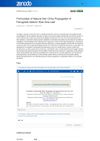 January 2024 in “Zenodo (CERN European Organization for Nuclear Research)”
January 2024 in “Zenodo (CERN European Organization for Nuclear Research)” The natural hair oil made from fenugreek seeds and aloe vera promoted strong hair growth, dandruff protection, and gave hair a shiny look.
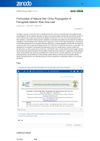 January 2024 in “Zenodo (CERN European Organization for Nuclear Research)”
January 2024 in “Zenodo (CERN European Organization for Nuclear Research)” The natural hair oil made from fenugreek seeds and aloe vera showed good hair growth, minimal side effects, and effective anti-dandruff and anti-fungal properties.

Lactobacillus plantarum L30 can help repair hair follicles and improve hair growth in alopecia.
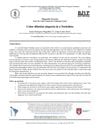 November 2022 in “Brazilian journal of veterinary pathology”
November 2022 in “Brazilian journal of veterinary pathology” The Yorkshire terrier has a genetic hair loss condition not improved by treatment.
April 2019 in “Journal of Investigative Dermatology” Alopecia Areata patients have too many Firmicutes and too few Bacteroides in their gut.
September 2017 in “The journal of investigative dermatology/Journal of investigative dermatology” EGFR inhibitors cause skin issues and hair loss by weakening skin defenses, suggesting antibiotics and targeted treatments can help.
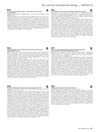 April 2017 in “Journal of Investigative Dermatology”
April 2017 in “Journal of Investigative Dermatology” Applying pseudoceramide improved skin and hair health.

Some bacteria use arsenic compounds as antibiotics, and others have evolved resistance; a particular arsenic-based compound shows potential as a new antimalarial treatment.
 26 citations,
May 2019 in “PLOS ONE”
26 citations,
May 2019 in “PLOS ONE” Hair loss patients have different microbes in hair follicles, possibly affecting hair loss.
22 citations,
September 2019 in “Trends in Immunology” Acne is a temporary skin imbalance during puberty that often resolves on its own.
 610 citations,
April 2014 in “Nature Reviews Immunology”
610 citations,
April 2014 in “Nature Reviews Immunology” The document concludes that understanding how the skin's immune system and inflammation work is complex and requires more research to improve treatments for skin diseases.
365 citations,
November 2018 in “Journal of Allergy and Clinical Immunology” People with atopic dermatitis have different skin bacteria, and targeting these bacteria might help treat the condition.
181 citations,
February 2019 in “Cell” Innate lymphoid cells help control skin bacteria by regulating sebaceous glands.






















